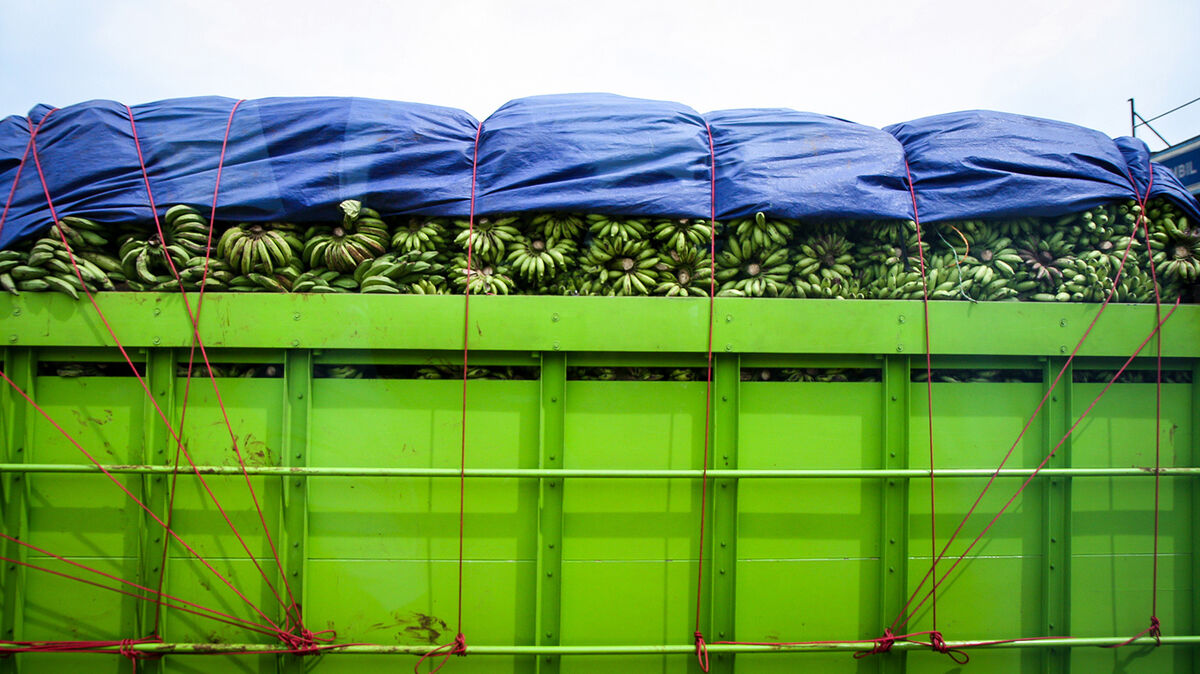
The term banana republic describes a struggling country whose economy depends on exporting natural resources — particularly agriculture, hence the banana — to larger, wealthier nations. These countries are politically unstable, making them susceptible to worker exploitation, government corruption, and foreign control. While banana republic used to be a commonplace term in political science, it’s considered derogatory today.
The Origin of “Banana Republic”
Like much of modern capitalism, the term banana republic came to be in the early 20th century. Writer O. Henry first used the term in a 1901 short story called "The Admiral," published in his 1904 book Cabbages and Kings.
In the constitution of this small, maritime banana republic was a forgotten section that provided for the maintenance of a navy. This provision—with many other wiser ones—had lain inert since the establishment of the republic. Anchuria had no navy and had no use for one. It was characteristic of Don Sabas—a man at once merry, learned, whimsical and audacious—that he should have disturbed the dust of this musty and sleeping statute to increase the humour of the world by so much as a smile from his indulgent colleagues.
O. Henry’s fictional, third-world country of Anchuria was based on real-world Honduras, an impoverished nation in Central America with an economy largely based on banana exports paired with a corrupt and destabilized government.
Just a few years later, the Cuyamel Fruit Company, an American fruit company and predecessor to the Chiquita Brand, brought bananas from Honduras to the United States for the first time. Cuyamel became so involved in the Honduran infrastructure and government that they helped to fund the 1911 Honduras coup — giving them even more control over the country.
Banana Republics in Political Science
Shortly after Cabbages and Kings was published, the term banana republic became an insulting term to describe Central American or tropical countries where poverty is widespread, the banana industry is critical, and political corruption and unrest are the norms.
No country or government is officially designated as a banana republic, but economists, journalists and others who study politics, economics and industry sometimes use the term to convey the reality that exists in certain locations.
What Is a Banana Republic Today?
As the term banana republic has evolved in the last century, it is no longer limited to countries in Central America or the tropics. Key characteristics of a banana republic in the modern world include:
- widespread government corruption
- tyrannical government
- unstable government
- civil unrest
- coup attempts/insurgency
- economic dependency on exporting a limited natural resource (which may or may not be bananas)
- infrastructure owned/supported by out-of-country interests
- overall economic dependency on foreign investment or business entities
- widespread poverty
- enormous gap between the ruling class and the working class (no middle class)
Examples of Banana Republics
In the modern world, one could consider a country a banana republic for reasons beyond bananas and agriculture. Latin American countries that are economically unequal may be considered banana republics, as well as African countries that depend on exporting resources, such as diamonds, minerals, or agriculture. Some political scientists also consider Caribbean countries that rely on tourism to have traits of banana republics.
Examples of modern-day banana republics may include:
- Bangladesh
- Brazil
- Botswana
- Chile
- Costa Rica
- Guatemala
- Haiti
- Honduras
- Kenya
- Nicaragua
- Nigeria
- Zambia
Is "Banana Republic" Offensive?
While many political scientists have moved away from the imperialism-era term, the economic world doesn’t seem as quick to make the move. For example, the Banana Republic clothing brand has not expressed a desire to change its name, claiming that it reflects a different interpretation of the term.
As the 21st century progresses, terms like banana republic may fade from our conversation and writing. However, more important than the term itself is its legacy — and implication in our global past, present, and future.